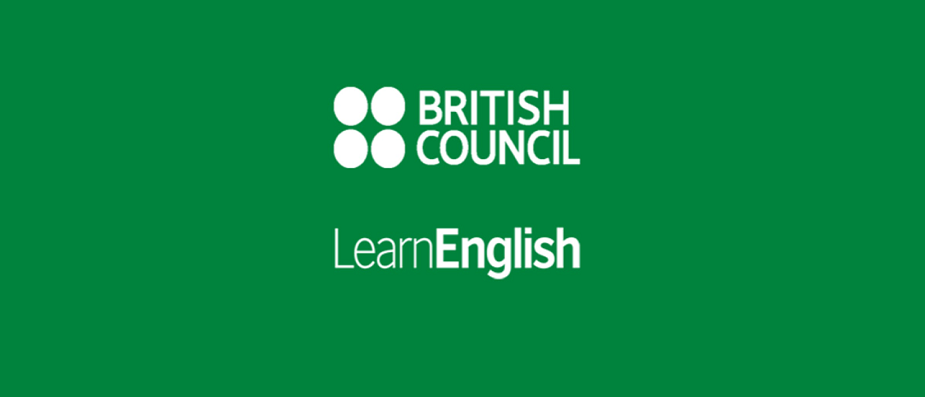پادکست British Council سطح B2 شماره 6
پادکست British Council سطح B2 شماره 6 :Business news
با ششمین قسمت از پادکست British Council سطح B2 (پایه Upper intermediate) همراه شما هستیم.
گوش دادن به این پادکست ها به تقویت مهارت listening ات کمک زیادی میکنه، پس اگه سطحت Upper intermediate ئه و دوست داری این مهارت خیلی مهم رو از همون قدم های اول یادگیری زبان تقویت کنی، این پادکست رو از دست نده!
قبل از گوش دادن به پادکست، تمرین آمادگی زیر را انجام بده. بعد به پادکست گوش کن و تمرین های آخر مطلب را با توجه به محتوای پادکست انجام بده.
تمرین آمادگی
کلمات ستون سمت چپ را به معنی آن ها در ستون راست وصل کن: (جواب تمرین در انتهای صفحه)
| معانی – Definition | لغات – Vocabulary |
| a. the number of people who go to an organised event (such as an election) b. information about a group of people c. a place where people go to vote in an election d. when a company announces it will make less money than expected e. money that a business receives over a period of time f. the difference between what something costs and how much it is sold for a part of a company’s profits that are divided among the people who own it h. a person who owns part of a company | revenue turnout a polling station demographics a profit warning a dividend a shareholder gross margin |
British Council – Intermediate:Business news
حالا به پادکست گوش کن. در این قسمت قراره به اخباری در مورد کسب و کار گوش بدی. با گوش دادن به پادکست هم می تونی مهارت شنیداریت رو تقویت کنی و هم کلی عبارت و کلمه ی کاربردی یاد بگیری.

متن پادکست:
So, we think we know how to motivate people, right? Offer them a reward. Do this and you’ll get this. Do this faster, earn more money. Do this better than everyone else, here’s a promotion. We offer incentives when we want people to do things. We do it at work, at school, even at home with our kids. Tidy your room and you can watch TV.
But when social psychologists test whether incentives work, they get surprising results. Sam Glucksberg, from Princeton University, America, set people a problem to solve and told them he was going to time them to see how long they took. Then he put them in two groups. He offered one group a reward for finishing fast. Five dollars for anyone finishing in the top 25 per cent and 20 dollars for the person who finished the fastest of all. To the other group he offered no incentive, but he told them he was going to use their times to calculate an average time.
The first group, the ones with the reward, solved the problem faster, you’d think, right? Well, no, they actually took three and a half minutes longer than the group who just thought they were being timed. Incentive didn’t work. In fact, it made them slower. This experiment has been repeated, with the same results, many times. But in business we still offer bonuses, promotions and rewards to staff.
That’s fine if we want them to do something simple, like chop wood. We’ll pay you more if you chop the wood faster. An incentive works then. But if we want someone to do something complex, something creative, something where they have to think, rewards don’t work. They might even have the opposite result, and make people perform worse. Another study, by Dan Ariely, showed that the bigger the reward, the worse the subjects performed on a complex task. The reward made them focus so hard on the result that they couldn’t think creatively any more.
And this all matters because more and more simple jobs will become automated. We’ll be left with creative, problem-solving jobs that computers will never do. And we need to find a way to motivate people to do those jobs when we’ve proved the traditional incentives don’t work.
So what does work? Giving your workers freedom; freedom to work on the things they want to work on, freedom to choose when, where and how they work. Want to work from home three days a week, get up late and work into the night instead? Fine. Just do the job well. And evidence shows people who choose the way they work get results. Companies that give employees time during the week to work on things that interest them and are not part of their regular job achieve amazing things. Some of the big tech companies are good examples of this, with ping-pong tables and areas to relax in …
حالا به سوالات زیر جواب بده:
تسک 1
گزینه درست کدام است؟
1) The election …
a. wasn’t too important because it was just a local one.
b. was very important for the whole country.
c. was about development.
2) There was a voter increase of …
a. six per cent since the last election.
b. 11 per cent since the last election.
c. 54.5 per cent since the last election.
3)ONK …
a. wants to go international.
b. has almost achieved the results it forecasted.
c. is a strong successful company with offices all over the world.
4) ONK posted quarterly revenue of …
a. $14.8 billion.
b. $18.4 billion.
c. $40.8 billion.
5) People want to …
a. carry smaller items when they leave their homes.
b. carry fewer items when they leave their homes.
c. own a smartwatch.
6)More and more retailers …
a. accept cashless payments.
b. accept cash.
c. don’t accept cash.
تسک 2
جملات زیر را با کلمات داخل پرانتز کامل کن:
(shareholders, demographics, increasing, trend, voter turnout, growing interest, profit warning, revenue, election, cashless payment, gross margin, polling stations, dividends)
1) There will be a number of new (a)……………………………… opened in time for next year’s
(b)……………………………… . The government is trying to increase (c)……………………………… . They
specifically want to focus on increasing the number of people from certain
(d)……………………………… , such as the 18–24 age group, or those from ethnic minorities.
2) A company’s financial report
The company (a)……………………………… is down seven per cent on this time last year as a result
of not enough of our leading products being sold and rising costs. It is for these reasons
© 2019 British Council www.britishcouncil.org/learnenglish
that the (b)……………………………… has also fallen and the company has no choice but to issue a
(c)……………………………… . This means that there will be freeze on (d)……………………………… to
(e)……………………………… until further notice.
3)There is an (a)……………………………… number of people who don’t like using cash to make
payments. We have also seen that (b)……………………………… people prefer to use
(c)……………………………… options. Furthermore, there is (d)……………………………… in completely
removing cash from society. However, many small shop owners say that this
(e)……………………………… will be bad for business.
جواب ها
1. e
2. a
3. c
4. b
5.d
6.g
7.h
8.f
تسک 1
1. b
2. b
3. c
4. a
5.b
6. a
تسک 2
1. (a) polling stations, (b) election, (c) voter turnout, (d) demographics
2. (a) revenue, (b) gross margin, (c) profit warning, (d) dividends, (e) shareholders
3. (a) increasing, (b) more and more, (c) cashless payment, (d) growing interest, (e) trend
امیدوارم از پادکست British Council سطح B2 شماره 6 لذت برده باشید. برای دسترسی به قسمت های دیگر این پادکست می توانید از صفحه ی پادکست British Council آکادمی مجازی آموزش زبان 24talk دیدن کنید.
همچنین برای گوش دادن به پادکست های BBC می توانید به صفحه ی پادکست 6 دقیقه انگلیسی (BBC) آکادمی مجازی آموزش زبان 24talk مراجعه کنید.
گوش دادن به پادکست روش خوبی برای تقویت مهارت شنیداری و هم چنین یادگرفتن کلمات در بستر یک موضوع خاصه که این به تقویت مهارت مکالمه انگلیسی نیز کمک زیادی می کنه.
اگه دنبال این هستی که مهارت های مکالمه زبان انگلیسیت رو بیشتر از این تقویت کنی بهت پیشنهاد میکنم در دورهی مکالمه زبان انگلیسی آکادمی مجازی آموزش زبان انگلیسی 24talk شرکت کنی که با یه برنامه منسجم و خلاقانه کمک میکنه در زمان کوتاه بتونی به راحتی و روانی انگلیسی صحبت کنی.








2 comments